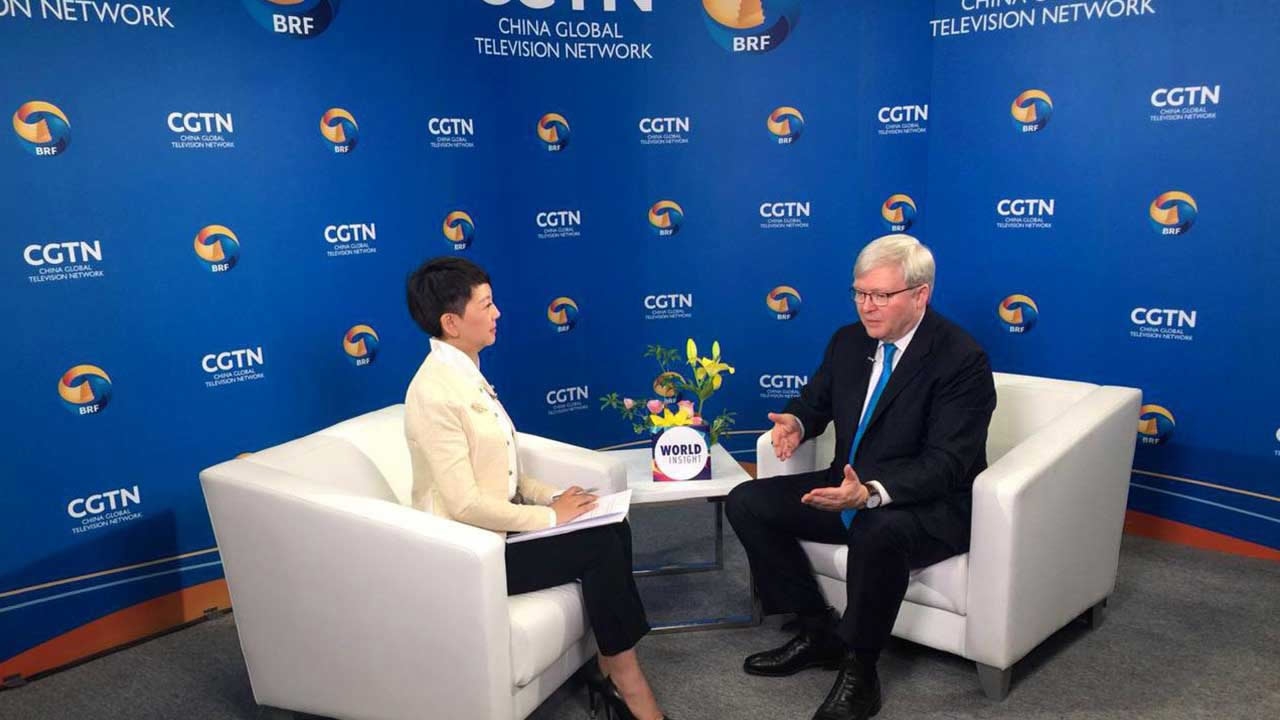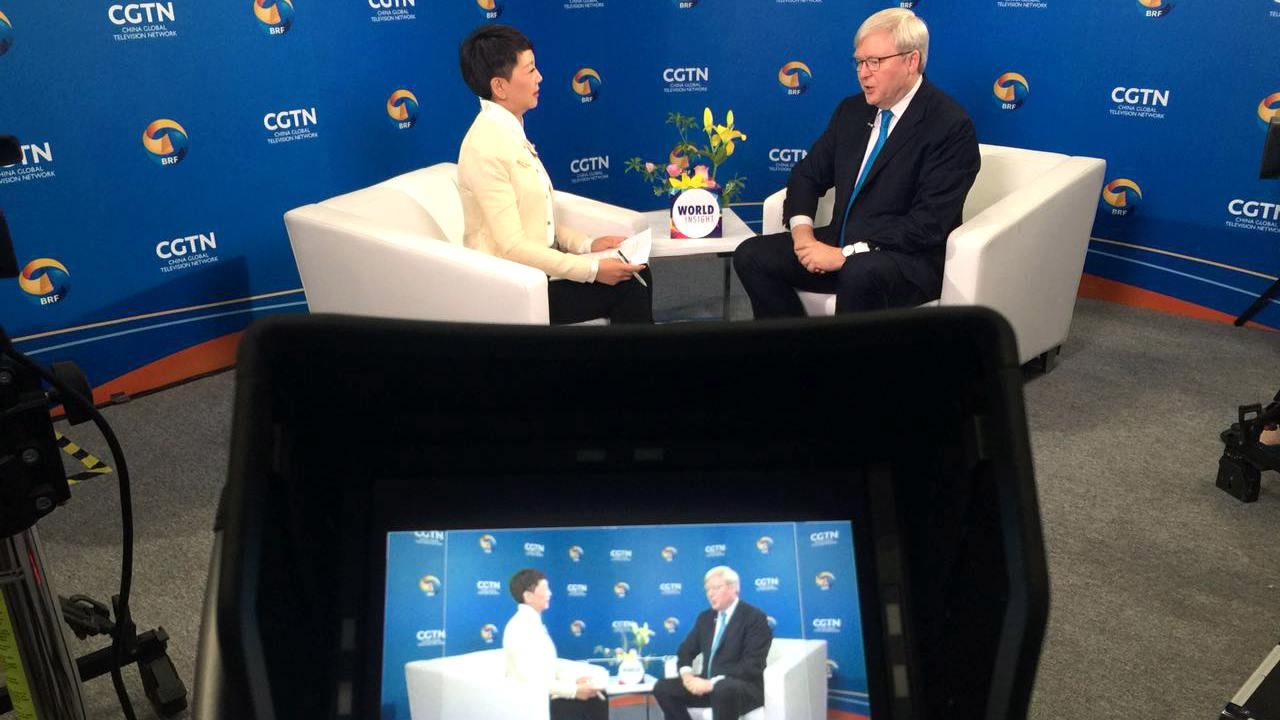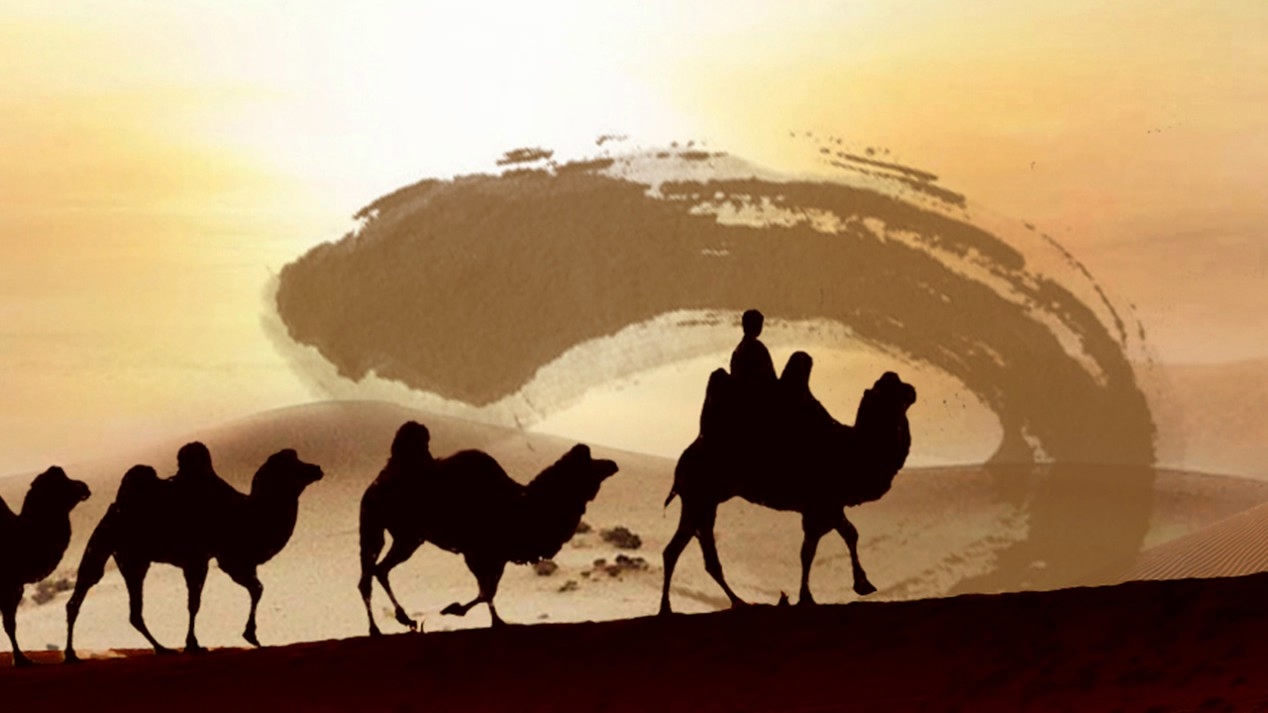
Politics
17:20, 15-May-2017
Exclusive with Kevin Rudd: China-proposed BRI helps solve political problems

By CGTN's Chen Pan
The China-proposed Belt and Road Initiative (BRI) is not only about infrastructure and economic growth, but also political and cultural dialogue, former Australian Prime Minister Kevin Rudd has said.
In an exclusive interview with CGTN on the sidelines of the Belt and Road Forum for International Cooperation, currently underway in Beijing, Rudd said he believes the BRI is China’s strategy to look westwards across Eurasia.

Former Australian Prime Minister Kevin Rudd speaking to "World Insight" host Tian Wei. /CGTN Photo
Former Australian Prime Minister Kevin Rudd speaking to "World Insight" host Tian Wei. /CGTN Photo
“(Geopolitically) I think China’s strategy is to look to its continental engagement across the Eurasia landmass, and to see this as a new strategic opportunity to consolidate the economic development of all those countries to China’s west and southwest,” Rudd said.
“Historically, post-war, China’s preoccupation has been its maritime front, with the US in particular. So I think geo-strategically this is about China developing and consolidating its own engagement with countries, cultures, civilizations to its west, rather than simply looking to the maritime front to its east,” he added.
Rudd also addressed some questions the outside world has raised about the BRI, saying the initiative should primarily be about commerce. Secondly, it should be about how we create a new culture of cooperation around what we commercially do, noting that this can help solve political problems as well.
“When you look at the BRI, it’s currently at multiple levels. One is pretty practical which is using Chinese investment, international investment, into infrastructure projects across the Eurasian continent to lift economic growth and to improve people’s living standards. That’s pretty hard in itself,” said Rudd.
“The second level is about how you use this to improve political and cultural dialogue between more than 60 countries with vastly different religious, political, economic systems, to produce a new common understanding about inclusive economic development. That is the second level of complexity,” he added.

The Belt and Road Initiative aims to improve trade and infrastructure connecting Asia with Europe and Africa. /CGTN Photo
The Belt and Road Initiative aims to improve trade and infrastructure connecting Asia with Europe and Africa. /CGTN Photo
The ongoing event is the highest-level forum on the Belt and Road Initiative, and has attracted 29 heads of state and government and over 1,500 delegates from 130 nations around the globe.
Chinese President Xi Jinping first introduced the Belt and Road Initiative in the fall of 2013, with an aim to improve trade and infrastructure connecting Asia with Europe and Africa.

SITEMAP
Copyright © 2018 CGTN. Beijing ICP prepared NO.16065310-3
Copyright © 2018 CGTN. Beijing ICP prepared NO.16065310-3